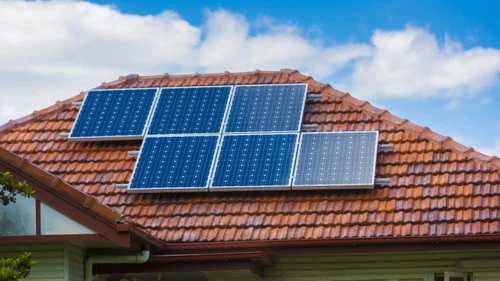
Introduction
Off-grid living with solar power has become a captivating topic in today’s society. As people strive for sustainability and self-sufficiency, understanding the essential considerations of living off the grid with solar power is crucial. This article will delve into the historical background, key concepts, main discussion points, case studies, current trends, challenges, future outlook, and conclude with a summary of the importance of comprehending the fundamental aspects of off-grid living with solar power.
Historical Background
Solar power has a rich history intertwined with off-grid living. The utilization of solar energy dates back thousands of years, as ancient civilizations harnessed the power of the sun for various purposes. However, it was in recent decades that solar power technology witnessed significant advancements. Innovations such as photovoltaic cells and improved battery storage systems revolutionized the feasibility of off-grid living with solar power.
Key Concepts and Definitions
To fully grasp off-grid living with solar power, it is essential to define the key concepts involved. Off-grid living refers to a lifestyle where individuals or communities are disconnected from the traditional power grid and rely on self-generated electricity. Solar power, on the other hand, involves harnessing the sun’s energy through photovoltaic cells to generate electricity. Understanding the essential considerations of off-grid living with solar power encompasses factors such as energy needs, system sizing, battery storage, backup power sources, and maintenance.
Main Discussion Points
Importance of Proper Solar Power System Sizing and Design
Accurately determining the energy needs of an off-grid living situation is vital. It ensures that the solar power system is appropriately sized and designed to meet these requirements. By assessing factors such as daily energy consumption, geographic location, and seasonal variations, individuals can optimize their solar power system to provide reliable and sustainable electricity.
Battery Storage and Management
Proper battery storage and management play a crucial role in off-grid living with solar power. Batteries enable energy storage for times when the sun is not shining, such as during cloudy days or nighttime. Different types of batteries offer varying characteristics and suitability for off-grid applications. Understanding the best practices for battery storage and management ensures the longevity and efficiency of the solar power system.
Backup Power Sources and Contingency Plans
In off-grid living situations, backup power sources are essential to ensure uninterrupted electricity supply. While solar power is reliable, unpredictable weather conditions or system failures may warrant alternative power sources. Generators or wind turbines are common backup options that can supplement solar power during periods of low energy production. Developing contingency plans for emergencies or extended periods of low solar energy availability is vital for a sustainable off-grid lifestyle.
Maintenance and Troubleshooting
Maintaining and troubleshooting solar power systems used in off-grid living is crucial for optimal performance. Regular maintenance activities, such as cleaning solar panels and inspecting connections, ensure maximum energy production and system efficiency. Inevitably, issues may arise, and troubleshooting skills become necessary to identify and address problems promptly. By following recommended maintenance guidelines and having troubleshooting knowledge, off-grid individuals can minimize downtime and maximize their solar power system’s lifespan.
Case Studies or Examples
Real-world examples of successful off-grid living with solar power showcase the practical application of essential considerations. These examples inspire and offer insights into the feasibility and benefits of off-grid living with solar power.
Current Trends or Developments
The field of off-grid living with solar power is continuously evolving, and staying updated on current trends is crucial. Advancements in technology and policy changes shape the landscape of off-grid living. Recent trends include the integration of smart home technologies, energy storage solutions, and community microgrids. Ongoing research findings and technological developments contribute to the improvement and affordability of off-grid solar power systems.
Challenges or Controversies
While off-grid living with solar power offers numerous advantages, it is not without challenges. Common challenges include initial setup costs, limited energy storage capacity, and system maintenance in remote locations. Additionally, controversies or differing viewpoints surround issues such as the environmental impact of solar panel production or the reliability of solar power during extreme weather events. Addressing these challenges and controversies is crucial to ensure a comprehensive understanding of off-grid living with solar power.
Future Outlook
Looking ahead, the future implications and advancements in off-grid living with solar power are promising. Technological developments, such as more efficient solar panels and advanced energy storage systems, will enhance the feasibility and affordability of off-grid living. Additionally, policy changes and incentives can encourage widespread adoption of sustainable off-grid practices. With continued innovation and awareness, off-grid living with solar power has the potential to become a mainstream lifestyle choice in the future.
Conclusion
In conclusion, understanding the essential considerations of off-grid living with solar power is vital for individuals seeking self-sufficiency and sustainability. From system sizing and battery storage to backup power sources and maintenance, each aspect plays a crucial role in ensuring a reliable and efficient off-grid lifestyle. By exploring historical backgrounds, case studies, current trends, challenges, and future outlook, individuals can make informed decisions and embrace the benefits of off-grid living with solar power.